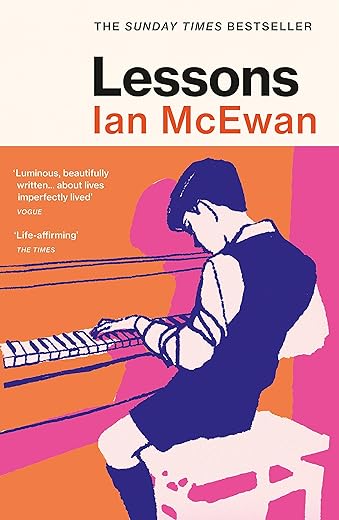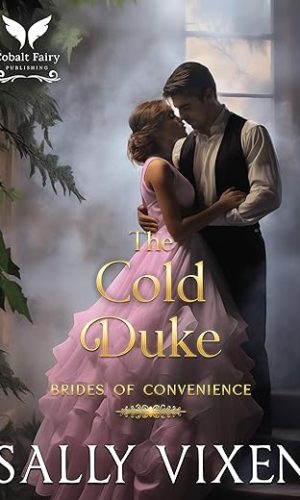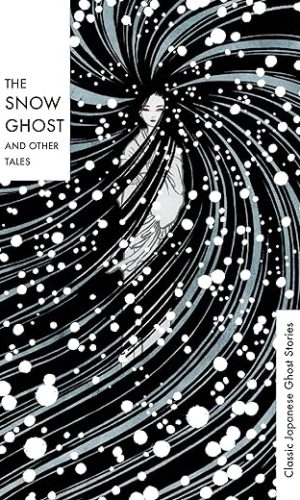Lessons: the Sunday Times bestselling new novel from the author of Atonement
£5.70
The story of a life. The story of the year.
‘Lessons shows [McEwan] at the very peak of his powers. He has written his masterpiece’ Daily Telegraph
When the world is still counting the cost of the Second World War and the Iron Curtain has descended, young Roland Baines’s life is turned upside down. Stranded at boarding school, his vulnerability attracts his piano teacher, Miriam Cornell, leaving scars as well as a memory of love that will never fade.
Twenty-five years later Roland’s wife mysteriously vanishes, and he is left alone with their baby son. Her disappearance sparks of journey of discovery that will continue for decades, as Roland confronts the reality of his rootless existence and attempts to embrace the uncertainty – and freedom – of his future.
‘Ian McEwan is a masterful storyteller’ Elif Shafak
‘A beautiful book about love, loss and regret’ Observer
‘Luminous, beautifully written… about lives imperfectly lived’ Vogue
‘A whole, unruly life between the covers of a single book: a literary feat’ Spectator
‘A tour de force… A single life is silhouetted against global happenings’ Sunday Times
* A Book of the Year for The Times, Sunday Times, Financial Times, Spectator, New Statesman, Washington Post, Vogue and New Yorker *
Read more
Additional information
| Publisher | Vintage Digital (13 Sept. 2022) |
|---|---|
| Language | English |
| File size | 2948 KB |
| Text-to-Speech | Enabled |
| Screen Reader | Supported |
| Enhanced typesetting | Enabled |
| X-Ray | Enabled |
| Word Wise | Enabled |
| Sticky notes | On Kindle Scribe |
| Print length | 484 pages |
| Page numbers source ISBN | 1529116325 |










by R. Byron
This is simply one of the finest, most poignant and well-written books I have ever read. Some books just strike a chord with a particular reader and this is one of those. It is full of interwoven lives, wrapped in key moments from the last seventy or so years of world history. There are surprises, there are moments of great sadness and regret but also many positives. Some of these ‘lessons’ lead you to the inevitable conclusion that much of our lives is of our own making and we can only blame ourselves if we fail to make the right choices.
I was never bored or distracted throughout this long book, the author kept the reader’s interest with great skill, sometimes by delaying the scene or conversation we knew was coming and sometimes by digressing to another thread of interest. I think that in particular the several meetings between key characters after many years of absence were compelling, real and credible.
It is always tempting to reflect on how much of this book is autobiographical, I suspect quite a lot, but I also believe that we should remember that this is a story, or several stories, and makes for a very moving and enjoyable read. I will wait a few months and read this again, I am sure I will enjoy it again and pick up nuances and threads that I may have missed on the first reading.
by Ralph Blumenau
WARNING: ALTHOUGH THIS REVIEW DEALS WITH ONLY PART OF THE BOOK, IT CONTAINS SPOILERS.
At 484 pages, this is a long, difficult, sprawling and, I think, over-stuffed and undisciplined book. It darts back and forth in time: we have to work out the dates of many events from world events which were happening at the same time. For there is always the historical background, like the effects of the Chernobyl disaster of 1986, the Cuban Missile Crisis of 1962, the situation in East Germany before and during the fall of the Berlin Wall, British domestic politics, global warming, and Covid lockdowns, etc..
The book needs to be read with an intense concentration which I found difficult to summon up, especially as I found parts of the book monumentally dull, full of padding and trivia, with long digressions into literature and popular music, and occasionally even incomprehensible. And there are occasions on which things happen that need explanations.
This review covers only that part of the book which relates to Roland Baines’ relationships with the three most important women in his life.
The first of these – and by far the most vividly described – is Miriam Cornell, who was Roland’s piano teacher during the five years when he was between eleven and fifteen years old. She was eleven years older than him, was sexually obsessed with him and he with her. At the age of thirteen, he had his first orgasm, masturbating when thinking of her. She had him visit her home and taught him how to make love to her. (His parents, with whom he was living at the time, don’t figure in this account at all.) She absolutely dominated him, expressing cowing displeasure when they disagreed about his musical taste. He was so obsessed with her that he failed all his O levels. Just before his sixteenth birthday in 1964, Miriam gave him his present: two first class tickets to Edinburgh in two days’ time, a hotel booking for the two of them – and a form, already filled out, to take to the Registry Office. (In Scotland it was legal to marry at the age of sixteen.) He panicked and said it was too soon. She said he was to do as he was told. But he did not give in, and she told him to leave and never come back.
Many years later, when Roland was 53, he was interviewed by Detective Constable Charles Moffatt, who had, inexplicably, come across Roland’s affair with Miriam in police records, and had concluded that hers had been a case of criminal sexual abuse. But (again inexplicably) he did not know her name and was trying to track her down. Roland had himself made such efforts from time to time. He did not want revenge and did not give Moffatt Miriam’s name. Instead, he got his son Lawrence to search for her on the internet, and he quickly found her details. Roland went to see her. He told her the police had come to see him about her. He made her tell him her side of her infatuation with him at the time. She accepted that the affair had been her fault and not his. But Roland knew that he had himself been equally obsessed with her, and had borne a responsibility for his own maneuvers.
The second relationship, at age 36, was with the German-born Alissa Eberhardt, whom he had first met when he took German lessons from her at the Goethe Institute and who had the ambition to become a great German writer. In 1985 they married, and they had a son, Lawrence. But this marriage lasted only a year before she left Roland and Lawrence to pursue her literary career in Germany, where she did indeed become the most famous living German writer. There is no sense of any trauma Roland might have experienced at Alissa’s desertion; their relationship does not seem to have had any real depth.
He ran into her when he was visiting Berlin at the time the Wall came down in 1989. She asked after Lawrence, but refused Roland’s offer for her to come and see him. She gave him a proof copy of her forthcoming book, The Journey, bulky at 725 pages. Back at his hotel, he read the first section of her book. It is an epic, beginning with the Blitz on London, then going on to the post-was period, and the writing was beautiful. Only his pride stopped him from writing to congratulate her. Neither in that novel, nor in the succeeding two novels and a collection of stories, could Roland find the slightest allusion to him or to Lawrence, nor to her private life.
But later she published another novel, Her Slow Reduction, and this time Roland figured in it as Guy, an oppressive, sometimes violent husband on whom is wife, Monika, had walked out leaving a seven-months-old daughter behind. At the end of that novel, Monica kills Guy.
Towards the end of the book, Alissa had to have a foot amputated, as the result of her heavy smoking; and she demanded that Roland should come to Germany to visit her. There is no explanation for this request. But he obeyed, intending to challenge her about her depiction of him. It is a strange encounter.
Roland’s third relationship was with Daphne, an old friend of Roland’s. In 1995 she had separated from her violent partner, Peter Mount, with whom she had had three children. She and Roland became lovers, but for Roland their affair was tepid, and he had no intention of marrying her. In the end, Daphne lost patience with his indecisiveness and made it up with Peter. We find later that Peter left her for the second time, and, in 2010, Roland did ask her to marry him. When they married, he was then 62, and she was 61. Soon afterwards she was diagnosed with advanced cancer. There follows a long account of what they did together in the last months of her life. They travelled a lot. Daphne told him that she wanted her ashes scattered in the river Esk in the Lake District. In the final phase she was in terrible pain in hospital, before she died in 2013. He kept her ashes for five years before, in 2018, he took them to the bridge from which to drop them into the river. She had told Peter thirty-five years earlier where she wanted her ashes to be disposed of. Ever since her death, Peter had pestered Roland about wanting to be involved with the disposal of her ashes. Roland loathed the man, not only because of his violent behaviour towards Daphne, but also because he was a militant Brexiteer. Peter now turned up. (No explanation of how he knew the time that Roland had chosen.) The two old men, both 70, wrestled with each other. Then Peter knocked him over with a large stone, seized the urn and emptied its contents into the river and then left.
The two stars I have given this review reflect, in part, on those parts of the book which I have not covered.
by Bill James
I loved this, but then again I’m a child of its time. The Berlin Wall, the snake oil odour of Blair and the rest if the boys in the band. It took me back. My wife wasn’t so keen. But, if you’re of a certain age, you’ll love it
by Sanjie
I enjoyed reading this book. It told some of the story of the main character over many years. Some of the events were difficult to read, but there was always some optimism. There was a lot of real connection and deep friendship between some of the characters.
by AdrianC
I came to this novel having avoided McEwan’s works since Amsterdam, which felt too contrived at the time. This work blew away any prior fatigue with the sheer breadth and insight into the life of the main protagonist (Roland). Eschewing and main plot to avoid any spoilers, McEwan weaves a tapestry of events both tragic and troublesome, each leaving long echos in the psyche and resonating throughout the unfolding events. We are forced to confront the age old dilemmas of human corruption, consequences and the choices which haunt us like ghosts until we expire. The crafting of the plot and characters is that of a master who knows how to thread a needle through the human mind and push its buttons. Drink it in like a fine wine.